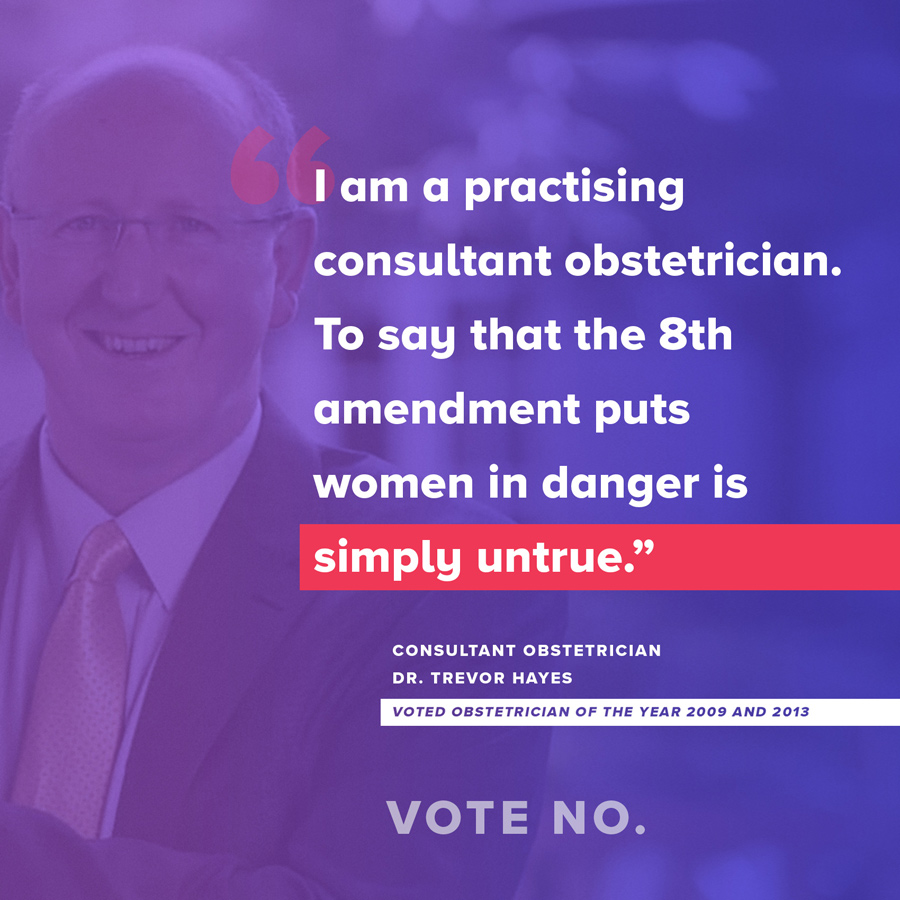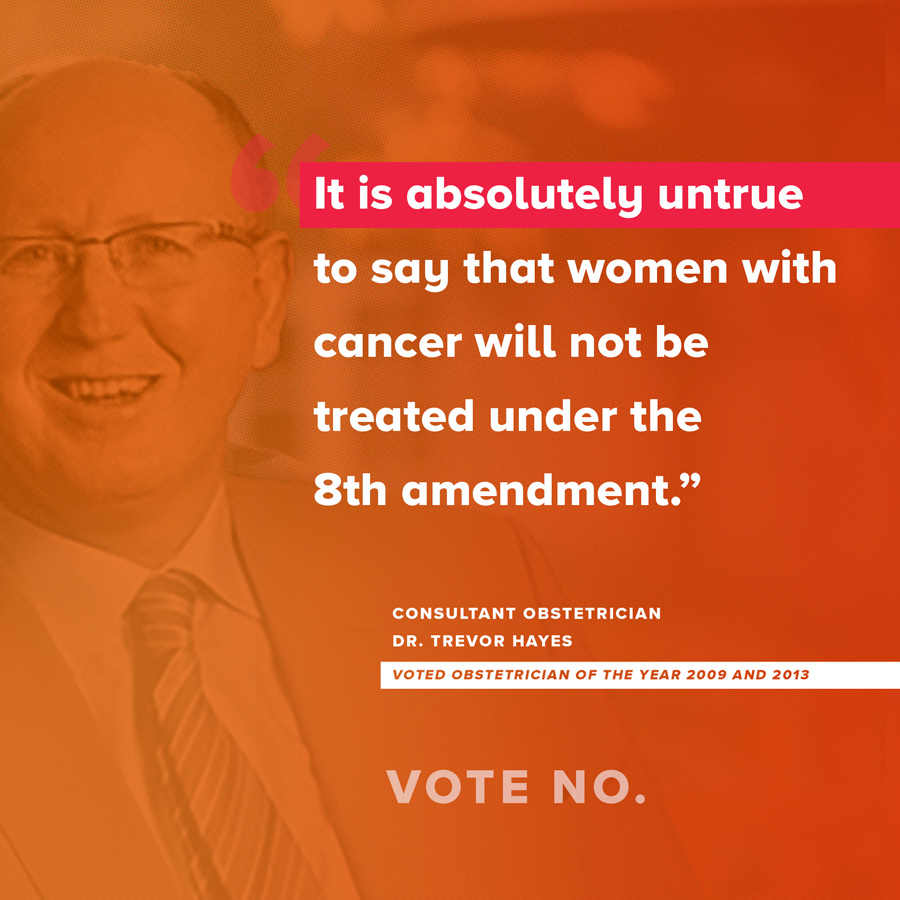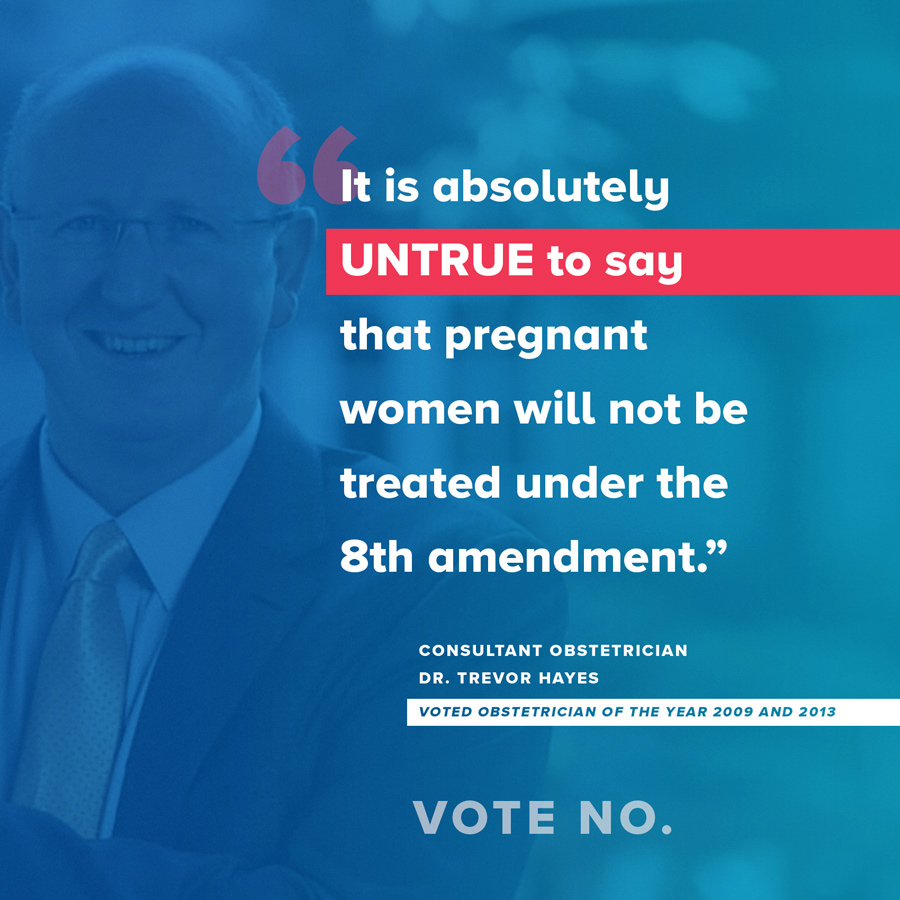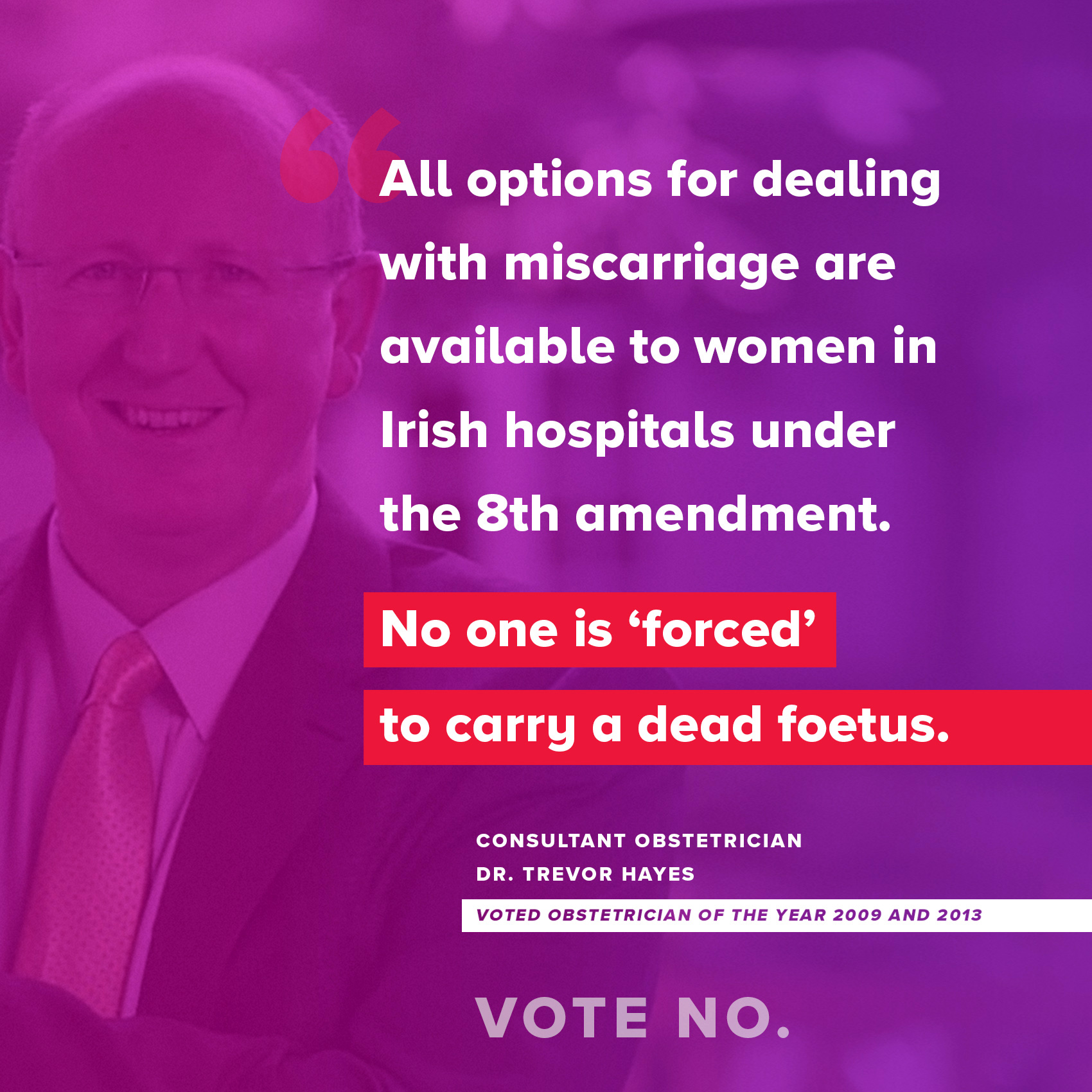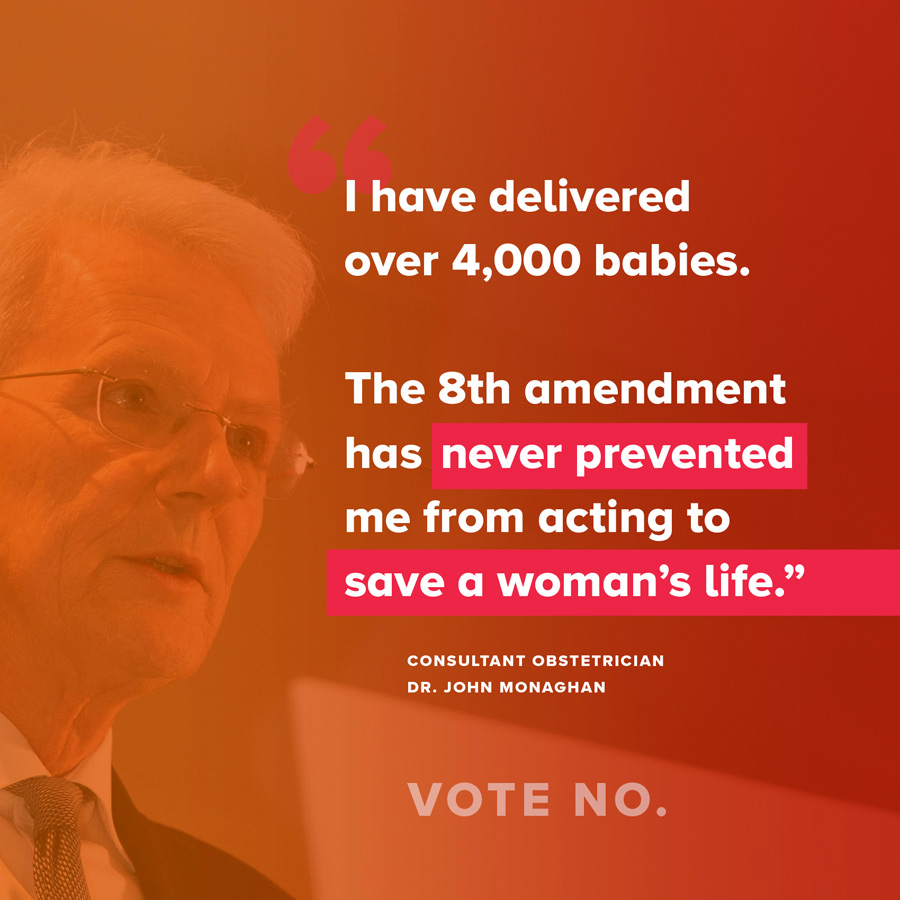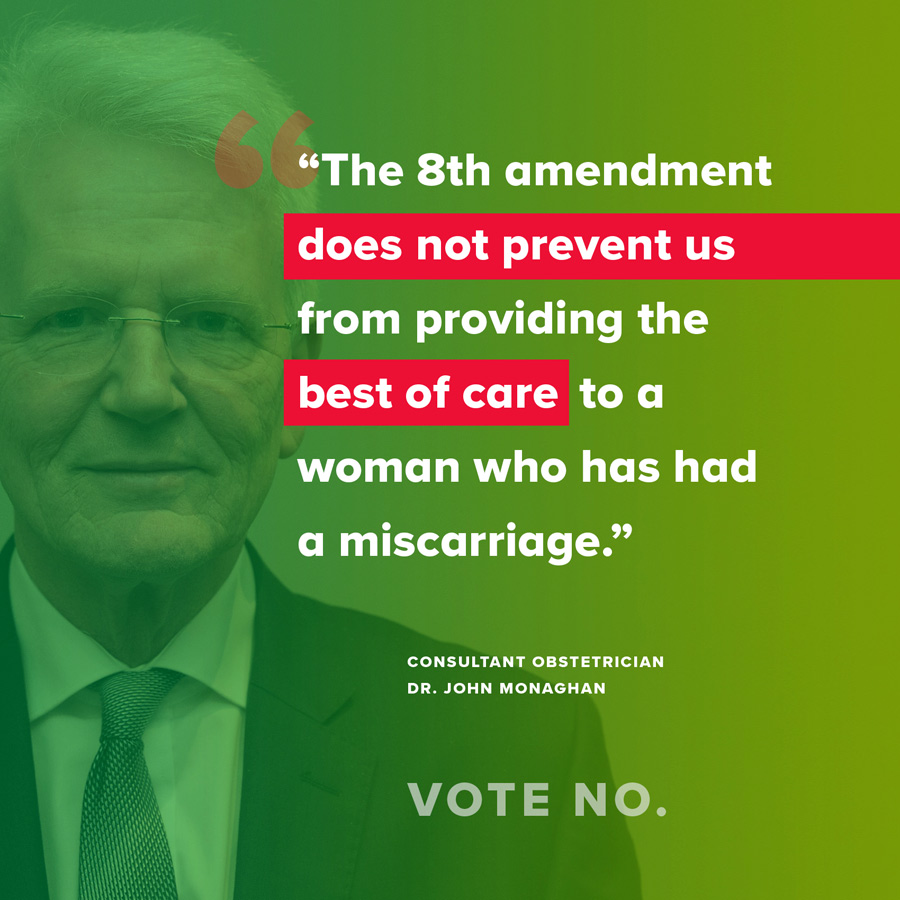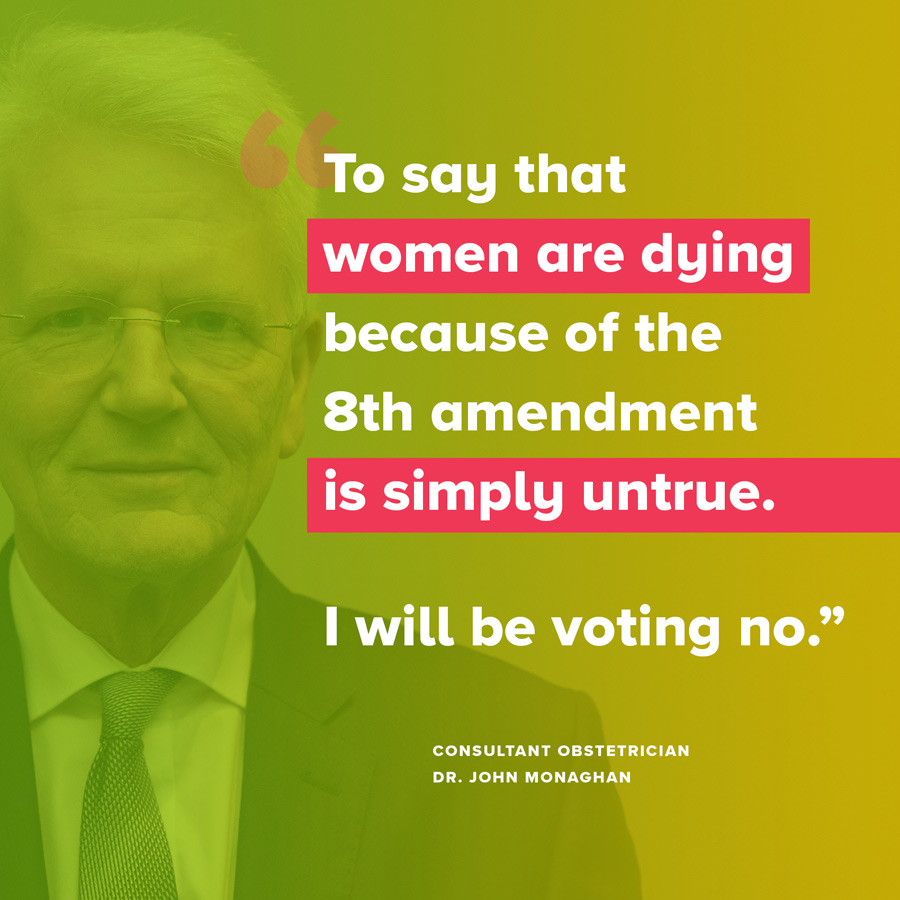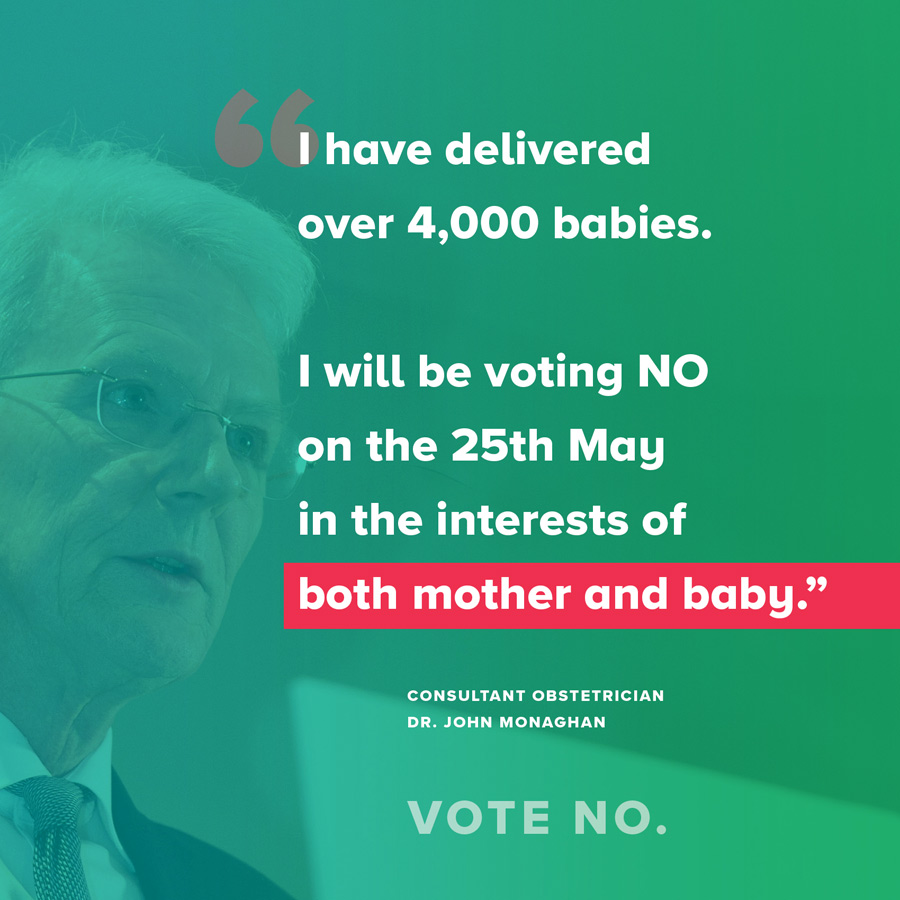Women are safe.
Doctors say women are safe under the 8th amendment.
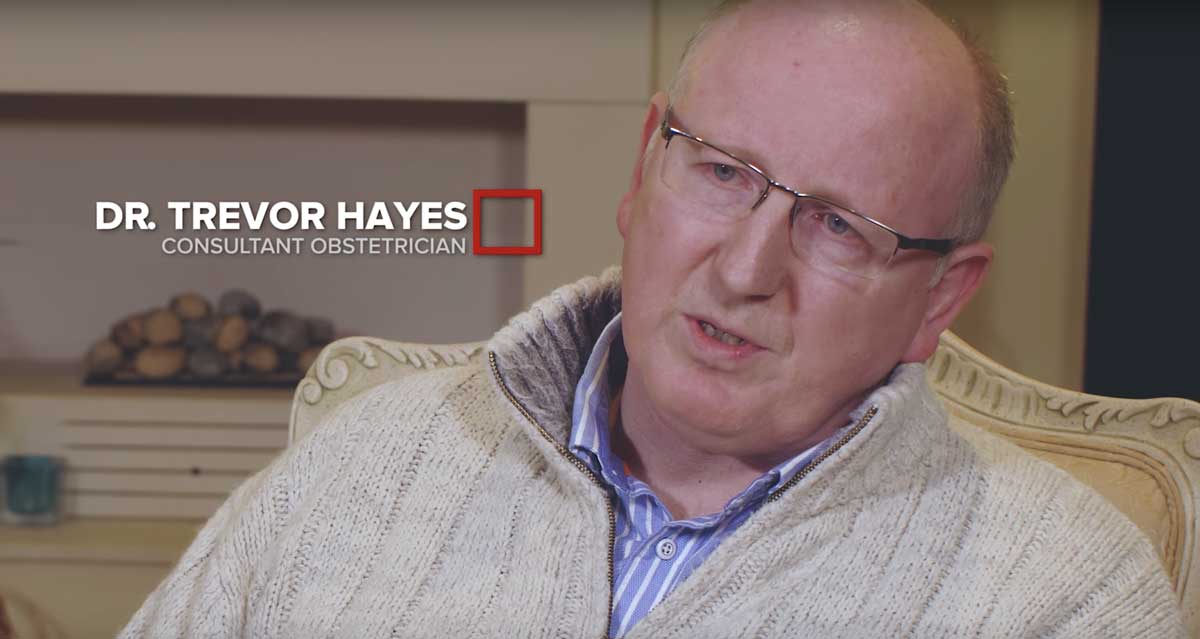
Doctors say they support the 8th because it protects BOTH lives.
Here's the evidence: the facts show that Ireland is one of the safest places in the world for a woman to have a baby.
- All Categories
- Filter 1
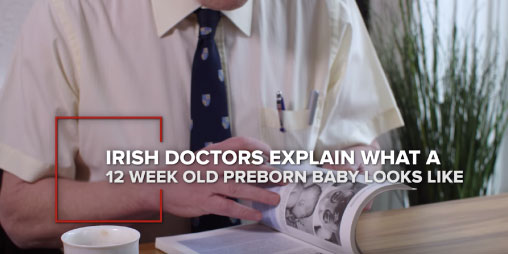
Doctors tell us what an unborn baby is like at 12 weeks.
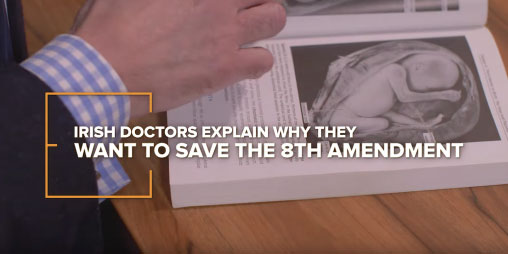
Doctors tell us why we should save the 8th
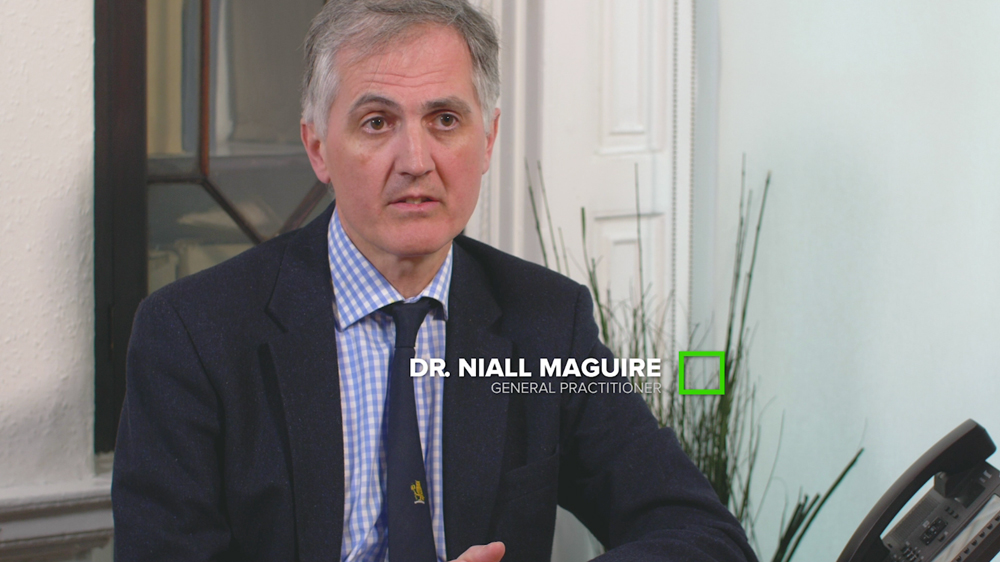
Abortion is NOT healthcare
Senior obstetricians and doctors tell us that abortion is NOT healthcare and that it is NOT necessary. The abortion advocates are scaring women and lying about abortion being healthcare.
Press Conference
Women Confirm Pro-Life 8th Never Prevented Life-Saving Treatments In Pregnany
5 Key Facts:
1. Ireland is one of the safest places to be pregnant
Just last year, a major report (1) found that it was Ireland was one of the the safest places in the world for a woman to have a baby - and that it was "extremely rare" for women to die in pregnancy or childbirth. Women are safer in Ireland under the 8th amendment, than Britain or the US, where abortion is freely available.
Clearly the 8th amendment does protect BOTH mother and baby - and allows women to be treated when their lives are at risk, even if that means the baby dies. According to a 2007 report on Maternal mortality by the World Health Organization, Unicef, UNFPA, and the World Bank, Ireland has one of the lowest instances of maternal mortality (maternal death) in the entire world.
The guidelines of the Irish Medical Council stated that doctors must give all necessary medical treatment to pregnant women, even if it results in the unintentional death of the baby. This is not an abortion.
Abortion activists says that the 8th amendment puts women’s lives in danger. This is both misinformation as well as dangerous propaganda. The 8th amendment means that Irish doctors must protect both mother and baby and this law had made Ireland one of the safest places in the world for a woman to have a baby.
The record shows that our laws have saved the lives of unborn babies and also kept women safe. The best way to protect the lives and interests of women is not to legalise abortion but to continue to work to provide to best health care and support to women facing challenging pregnancies.
(1) The Confidential Maternal Death Enquiry (MDE Ireland) 2013-2015. Maternal death rate of 6.5 per 100,000 or 1 in every 15,301 is extremely low compared with a rate of 8.8 per 100,000 in the UK 26.7 per 100,000 in the US. Source.

Abortion isn't healthcare.
Repealing the 8th amendment will damage our health service and alter heathcare
2. What do Doctors say?
Obstetricians and gynecologists (the doctors who care for women in pregnancy) have repeatedly gone on the record to say that abortion is not needed to save women’s lives, and that there is an important difference between an intervention to save a woman’s life where the baby might be lost, and an abortion, where the sole purpose is to kill the baby.
In 2013 a major Dáil inquiry heard from leading medical experts on abortion.(1)
Senator Dr John Crown asked the doctors if they were aware of instances where there had been “needless maternal deaths” because of the ban on abortion.
The Obstetricians confirmed that they did not know of ANY situation where a woman had lost her life in Ireland because she was denied treatment because of our abortion ban.
They also said they were not aware of ANY situation where they or other doctors had been prevented from providing life-saving medical treatment by Ireland’s laws on abortion.
They also confirmed that not one woman had committed suicide in their hospitals because she could not obtain an abortion.
It was also clarified that all life-saving treatments were always provided to women with cancer arising in pregnancy.
(1) Source
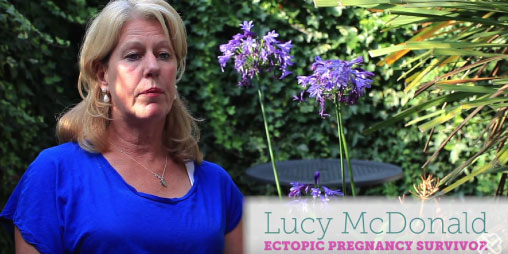
Treatment for ectopic pregnancy is not abortion
Lucy McDonald had treament for an ectopic pregnancy: like other women who undergo this life-saving treatment, she and her doctors know that this wasn’t an abortion. Abortion is not healthcare. Real Healthcare saves lives.
3. Doctors have been saying women are safe under the 8th consistently.
In 2000, an Oireachtas Committee also looked at this issue. Professor John Bonnar, the then Chairman of the Institute of Obstetricians and Gynaecologists, testified that:
“95% of members of the Institute of Obstetricians and Gynaecologists surveyed said that they could preserve mother’s lives and health without abortion.”
The Institute of Obstetricians and Gynaecologists submitted that:
“We consider that there is a fundamental difference between abortion carried out with the intention of taking the life of the baby, for example for social reasons, and the unavoidable death of the baby resulting from essential treatment to protect the life of the mother.”
In addition, Dr Frédéric Amant, a world-renowned cancer specialist, has recently stated that:
“In the case of cancer complicating pregnancy, termination of pregnancy does not improve maternal prognosis”.
The International Symposium on Maternal Health released a statement (now signed by 1000+ medical experts) stating:
“We confirm that the prohibition of abortion does not affect, in any way, the availability of optimal care to a pregnant woman.”
Currently in Ireland, where women have the protection of the 8th amendment, pregnant mothers are given all the medical treatment necessary to save their lives in life threatening situations, including occasionally delivering their babies prematurely if required. Even though there is a chance the baby may not survive, doctors would make every attempt to save both the mother and the child in these circumstances.
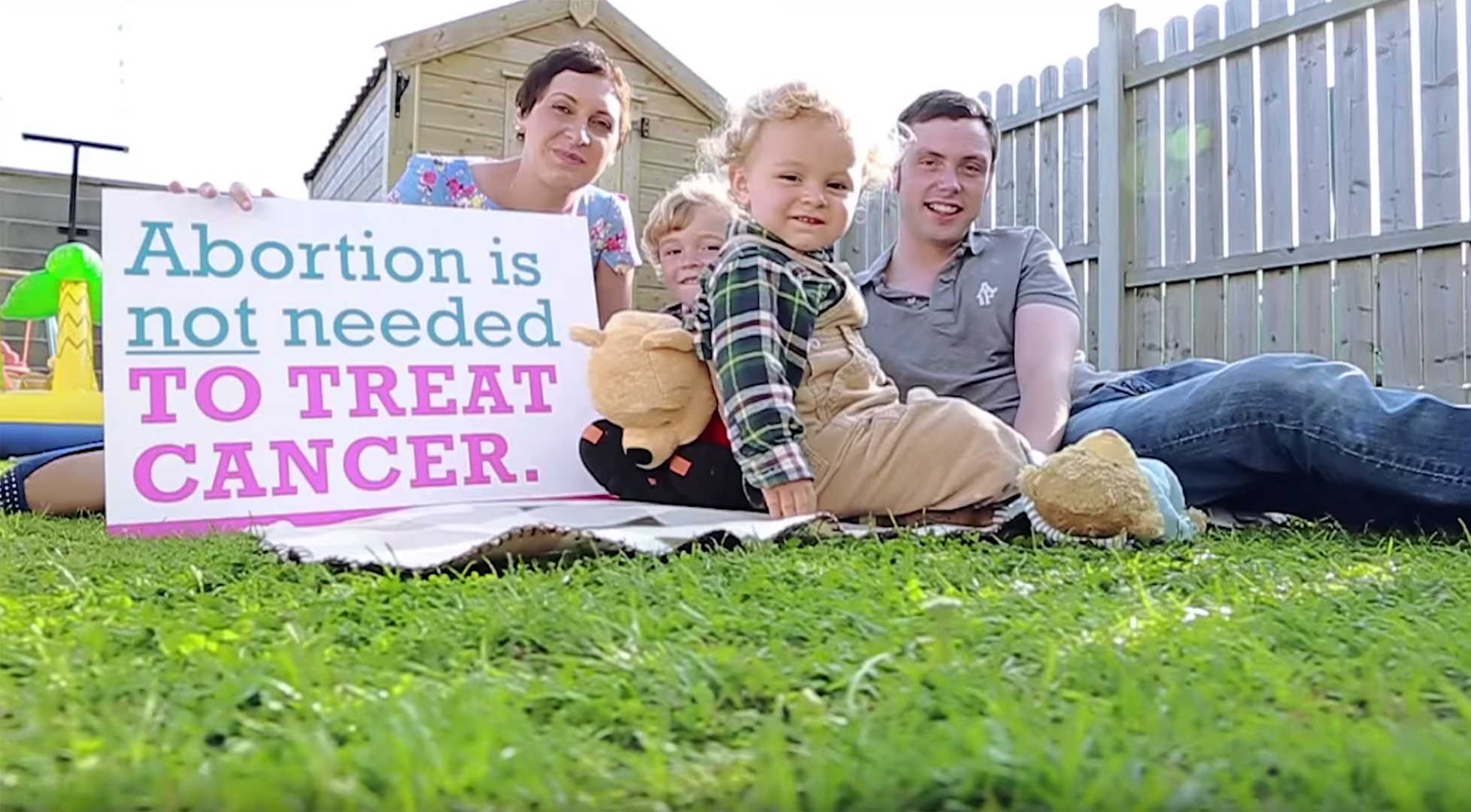
Audrey was treated for cancer while pregnant
"I had cancer while pregnant in 2013. I received all the treatment I needed in Ireland including radiotherapy and chemotherapy without any hesitation from my doctors. Women with cancer in pregnancy are NOT being denied treatment here, and are NO forced to travel because of Ireland's ban on abortion."
4. The difference between a life-saving intervention and abortion
There is a difference between abortion and interventions to save a mother's life which might lead to the death of the baby. At the Dáil Committee, doctors were asked about the difference between terminating a pregnancy and terminating the life of an unborn child.
Dr Sam Coulter Smith said that in most situations it was possible to “deliver the foetus rather than kill the unborn” while Dr Rhona Mahony said that while delivery before viability might be required there was “no intention to kill the foetus”.
Source
Louise Dunleavy was treated for Sepsis while pregnant
Like Savita Halappanavar, Louise Dunleavy developed blood poisoning during pregnancy. Doctors discovered she had a septic abscess on her spine. She was hours from death. Louise underwent aggressive antibiotic therapy, and now has a healthy baby. If necessary, doctors would have operated to remove the infection, even if that meant delivering her baby early. Ireland’s ban on abortion never prevented women getting the treatment they needed
5. What about the case of Savita Halappanavar?
Savita Halappanavar died tragically in a Galway hospital in 2012, from an infection in the blood (sepsis) arising from E-Coli ESBL, a dangerous strain of bacteria resistant to most antibiotics.
Official inquiries into her death found that the real issue was the management of sepsis, not abortion. The Health Information and Quality Authority (HIQA) Inquiry (1) in October 2013 found that her medical team missed 13 opportunities to intervene and save her life. Staff failed to diagnose the ESBL infection which led to her death, and did not understand that her life was in danger. It is normal in cases of miscarriage to take a wait and see approach, as unnecessary intervention can be harmful. If, however, the doctors in Savita’s case had realised in time that her life was in danger, they were free under Irish law to intervene and give her all necessary medical treatment, even if that treatment resulted in the early demise of her baby.
At the Coronor's court inquiry into Savita's death, her doctor, Dr Katherine Astbury confirmed that if she had been aware of Savita's infection she would have terminated the pregnancy - as was permissible under Irish law. (2)
In fact, Dr Sam Coulter Smith, Master of the Rotunda Hospital, told an Irish Medical Organisation conference in April 2013 that he had acted to save the mother’s life when severe sepsis arose four times in the previous year, and that, while the interventions led to the loss of the baby’s life, these were not abortions but interventions to save the life of the mother.
The perception that Savita’s death was as a result of Ireland’s ban on abortion was created by the pro-abortion lobby who wanted to use her case in order to legalise abortion, and conveniently ignored all the medical evidence in the case.
(1) Source(2) Source
Would an abortion have saved Savita’s life?
This claim was made by Dr Peter Boylan, an abortion campaigner, but he was brought to task by 11 senior Obstetricians and Specialists for making that claim who wrote an open letter printed in the Irish Times pointing out that no doctor can predict a clinical outcome with certainty, and that E.coli ESBL is a particularly difficult bacteria to treat. (3)
The question which should be asked is this: did the 8th amendment prevent the doctors from acting to save her life and the answer is clearly no, it did not and we have evidence to support that. Not only do we have three independent enquiries finding that the mismanagement of a septic miscarriage is what lead to Savita’s death we also know that the 8th Amendment did not stop doctors from terminating pregnancies due to sepsis in the preceding yea
Source
A Silent Killer : Savita's Story
A documentary that was aired on TV3 which explains how Savita died tragically after being admitted to Galway University Hospital in October 2012
Dr Eamon McGuinness on RTE News at One
Dr Eamon McGuiness on RTE News at One taking questions from the public
Dr. Kristen Fuller on RTÉ 1
Dr. Kristen Fuller was on RTÉ Sean O Rourke show on 9th May. Opposing her was Together for Yes spokesperson
Dr. Andrew O'Regan on Cork Today FM
Cork Today Dr. Andrew O'Regan on the 8th May 2018 defending the 8th amendment and giving the reality of abortion and the upcoming referendum

